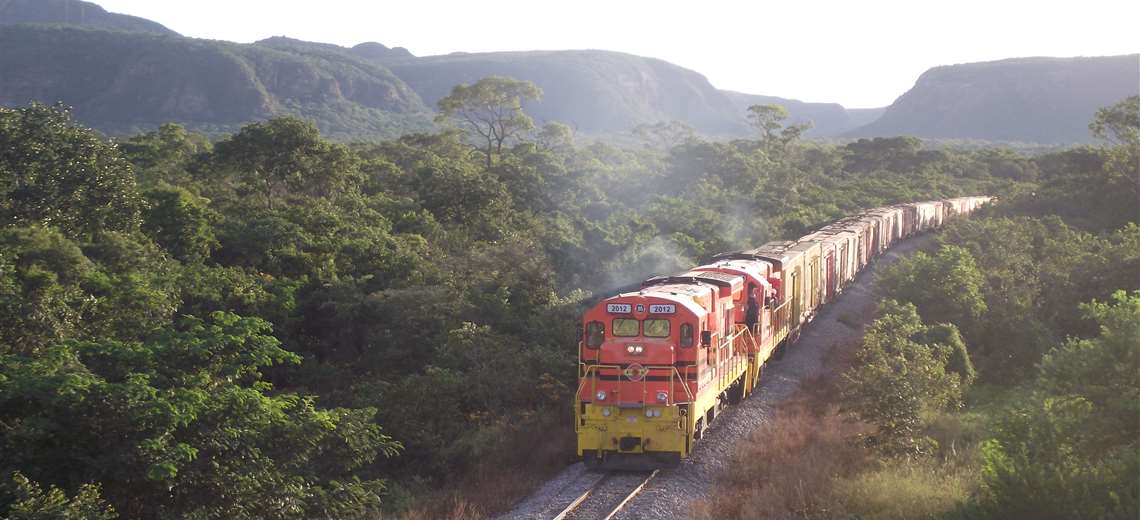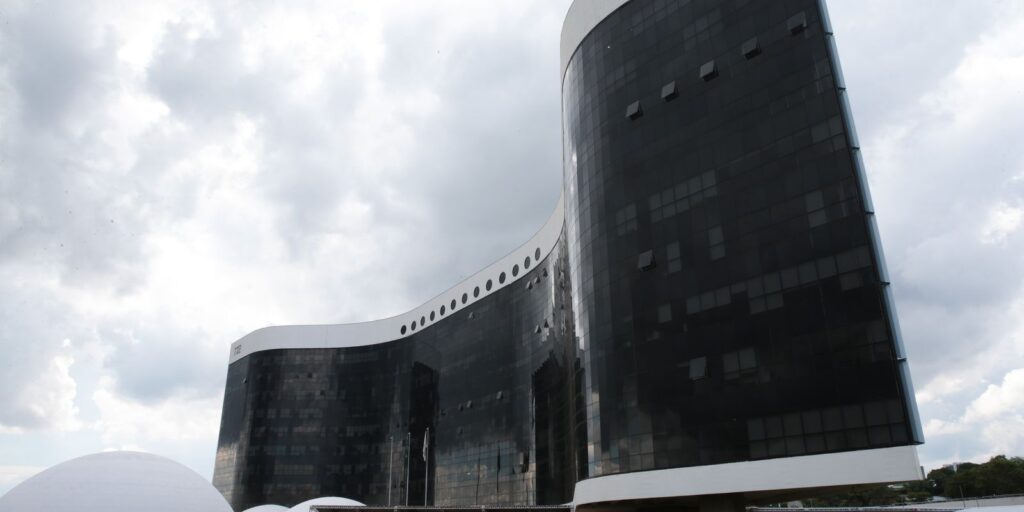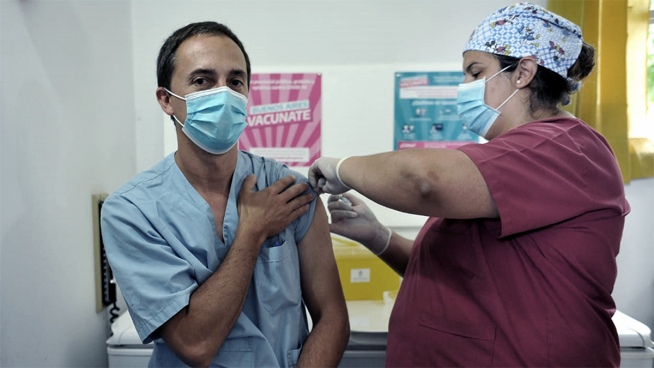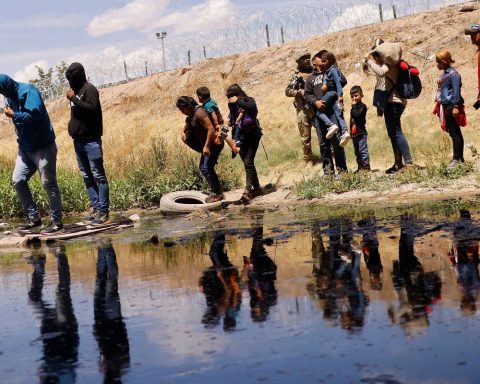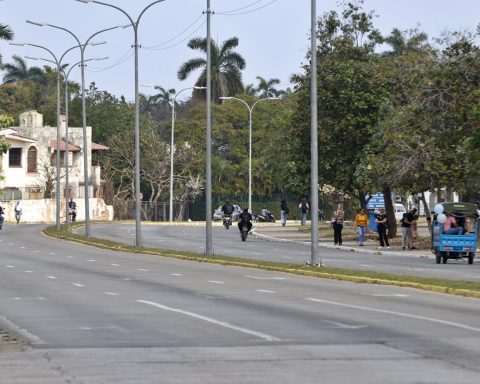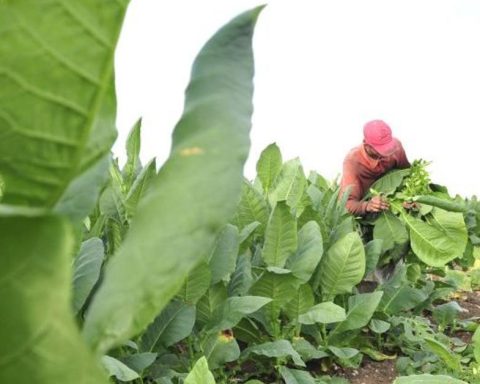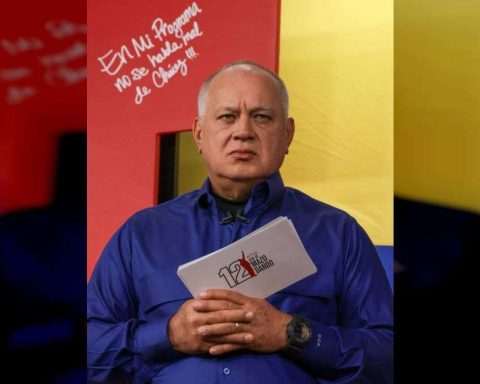Bolivia has the necessary load to guarantee the investments of Brazil and Peru in the Bi-oceanic Integration Rail Corridor (CFBI) and advances in the works to unite its railway network with the Montero-Bulo Bulo and Ivirgarzama-Villa Tunari projects, informed the Minister of Public Works, Services and Housing, Édgar Montaño.
“Bolivia is essential in the bi-oceanic corridor and they will never take us out” of this project. “We have advanced quite strongly on this issue and we have important achievements,” said the authority regarding the Paraguayan initiative to link the Atlantic and Pacific oceans by road.
Montaño explained that more than 1,448 kilometers of railways have already been built in Bolivian territory and that the necessary projects are developed to unite the Western network with the Eastern networkwhich have a cargo transport capacity with which the highways of neighboring countries cannot compete.
“This month we have put out to tender the studies for the final design of Bulo Bulo-Ivirgarzama-Puerto Villarroel, so that the section that corresponds to the Ichilo-Mamoré waterway is also occupied, and from Ivirgarzama we go directly to Villa Tunari. These sections have already been put out to tender and surely in these weeks we will make it known who has been awarded the corresponding study”, maintained the minister.
The authority also mentioned, without giving details, that projects are being undertaken to unite Montero-Bulo Bulo, a railway section that has been under construction since 2012 and that after passing through the controversial hands of the Chinese CAMC is now in charge of the Bolivian Road and Hydraulic Constructions.
The Minister of Public Works also remarked that if Brazil and Peru are going to invest in the CFBI “it is because they have to be sure they have that load.” “We are demonstrating with documentation that we are going to generate the cargo in Bolivia,” he insisted.
He explained that the Bolivian State will transport its cargo of minerals and soybeans through the future bi-oceanic rail corridor.
The CFBI on the Brazilian side, he continued, will start in the Port of Santos (São Paulo), where 98 million tons of cargo arrive and has in its area of influence the state of Mato Grosso Do Sul, which contributes 36.76% of Brazil’s GDP.
“The options that Chile and Paraguay have include only the state of Paraná, which contributes only 5.76% of GDP Brazilian,” Montaño said.
The authority described the highway corridor promoted by Paraguay as “a simple road”, unlike the Bolivian highway corridorwhich is asphalted in an extension of more than 1,800 kilometers and with double tracks in many of its sections, such as El Sillar, which will be delivered in this management, and Confital-Bombeo, whose tender is ready to be launched.
the minister anticipated that this month Bolivia, Brazil and Peru will hold a meeting within the framework of the CFBIto which they will invite Paraguay and Uruguay.
“We clearly say that we have the option that the cargo that comes through the Atlantic Ocean can be unloaded into the Pacific through Ilo, Matarani, Iquique or Arica., where the exporter or importer requires it. We Bolivians have that range of facilities for the issue of the bi-oceanic corridor,” he asserted.
Bolivia has the necessary load to guarantee the investments of Brazil and Peru in the Bi-oceanic Integration Rail Corridor (CFBI) and advances in the works to unite its railway network with the Montero-Bulo Bulo and Ivirgarzama-Villa Tunari projects, informed the Minister of Public Works, Services and Housing, Édgar Montaño.
“Bolivia is essential in the bi-oceanic corridor and they will never take us out” of this project. “We have advanced quite strongly on this issue and we have important achievements,” said the authority regarding the Paraguayan initiative to link the Atlantic and Pacific oceans by road.
Montaño explained that more than 1,448 kilometers of railways have already been built in Bolivian territory and that the necessary projects are developed to unite the Western network with the Eastern networkwhich have a cargo transport capacity with which the highways of neighboring countries cannot compete.
“This month we have put out to tender the studies for the final design of Bulo Bulo-Ivirgarzama-Puerto Villarroel, so that the section that corresponds to the Ichilo-Mamoré waterway is also occupied, and from Ivirgarzama we go directly to Villa Tunari. These sections have already been put out to tender and surely in these weeks we will make it known who has been awarded the corresponding study”, maintained the minister.
The authority also mentioned, without giving details, that projects are being undertaken to unite Montero-Bulo Bulo, a railway section that has been under construction since 2012 and that after passing through the controversial hands of the Chinese CAMC is now in charge of the Bolivian Road and Hydraulic Constructions.
The Minister of Public Works also remarked that if Brazil and Peru are going to invest in the CFBI “it is because they have to be sure they have that load.” “We are demonstrating with documentation that we are going to generate the cargo in Bolivia,” he insisted.
He explained that the Bolivian State will transport its cargo of minerals and soybeans through the future bi-oceanic rail corridor.
The CFBI on the Brazilian side, he continued, will start in the Port of Santos (São Paulo), where 98 million tons of cargo arrive and has in its area of influence the state of Mato Grosso Do Sul, which contributes 36.76% of Brazil’s GDP.
“The options that Chile and Paraguay have include only the state of Paraná, which contributes only 5.76% of GDP Brazilian,” Montaño said.
The authority described the highway corridor promoted by Paraguay as “a simple road”, unlike the Bolivian highway corridorwhich is asphalted in an extension of more than 1,800 kilometers and with double tracks in many of its sections, such as El Sillar, which will be delivered in this management, and Confital-Bombeo, whose tender is ready to be launched.
the minister anticipated that this month Bolivia, Brazil and Peru will hold a meeting within the framework of the CFBIto which they will invite Paraguay and Uruguay.
“We clearly say that we have the option that the cargo that comes through the Atlantic Ocean can be unloaded into the Pacific through Ilo, Matarani, Iquique or Arica., where the exporter or importer requires it. We Bolivians have that range of facilities for the issue of the bi-oceanic corridor,” he asserted.
;
